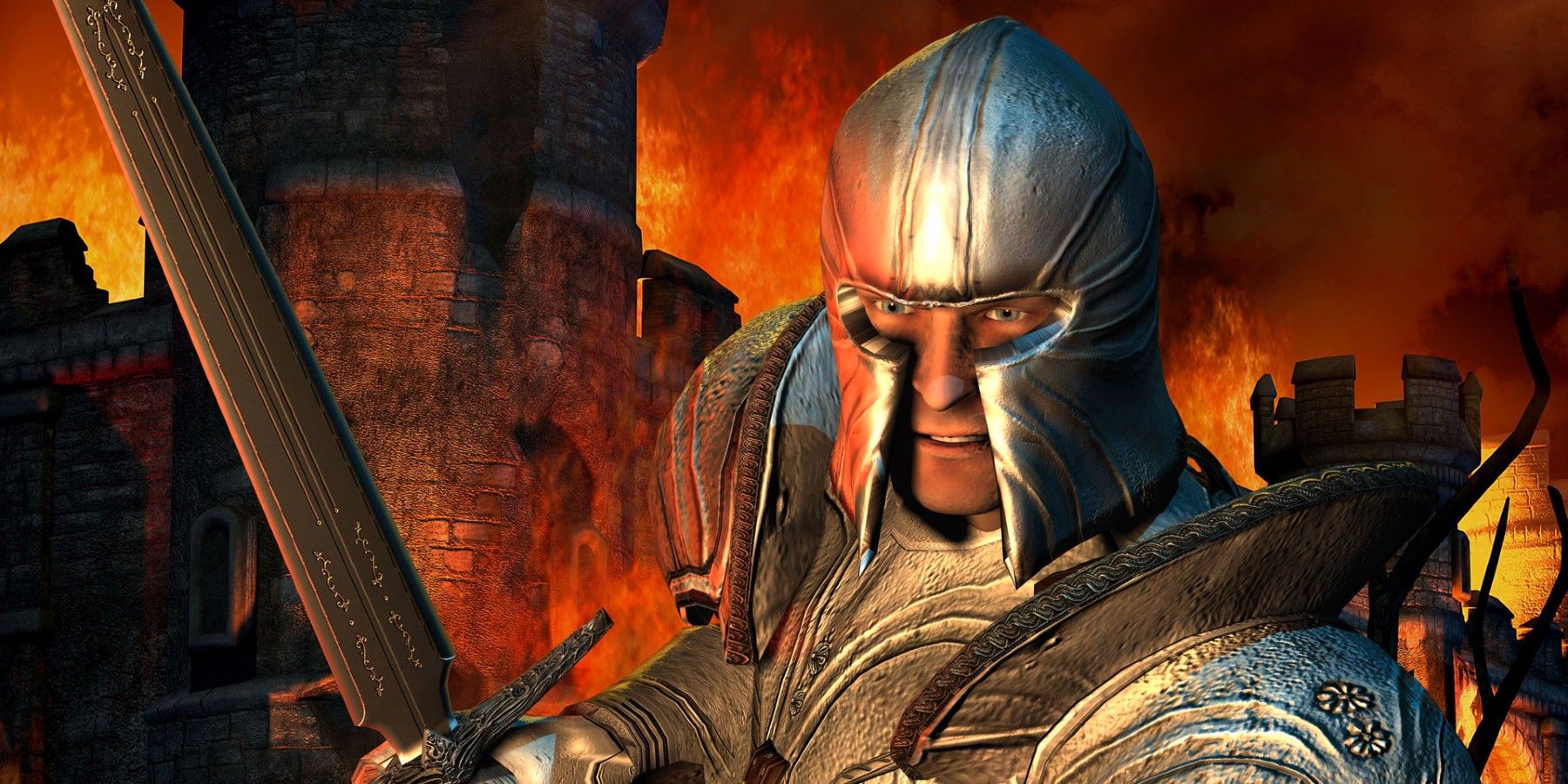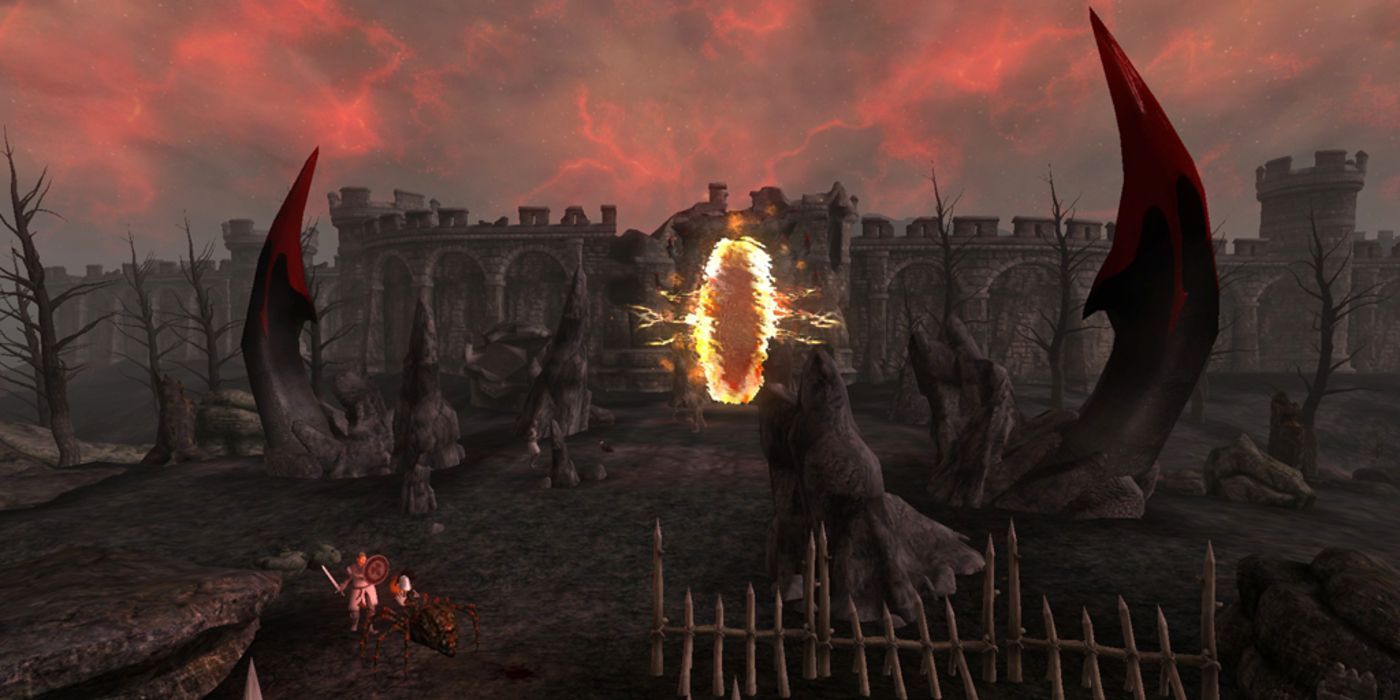Although Bethesda has confirmed little about The Elder Scrolls 6 since its announcement over three years ago, fans have been able to glean some key details about the upcoming game. Eagle-eyed viewers were quick to notice that the trailer for Bethesda’s space-set RPG Starfield contained a small symbol resembling a map of Hammerfell and High Rock. This small tease added weight to long-held suspicions that players would be venturing to western Tamriel in the next game.
If The Elder Scrolls 6 is indeed set around the Iliac Bay, there are a few details that can be inferred from the lore, like Hammerfell being released as an Imperial province and the Redguards’ continued guerilla war with the Aldmeri Dominion. As with most Elder Scrolls protagonists, fans can only assume that the hero of The Elder Scrolls 6 will essentially be a blank slate whose race, background, and motives are left entirely to the player’s imagination. Not all blank slates are made alike, however. If The Elder Scrolls 6 is going to play into Bethesda’s greatest strengths, its hero needs to take after Oblivion’s Hero of Kvatch, not Skyrim’s Dragonborn.
RELATED: The Elder Scrolls 6: Why Imperials May Be Nothing Like They Were in Skyrim
The Elder Scrolls’ Protagonists

Describing the character of The Elder Scrolls’ protagonists is practically impossible, and that’s the point. While players have a degree of control over other famous RPG heroes like Mass Effect’s Commander Shepard. Shepard's underlying personality still shines through due to the character’s voiced lines, the relatively linear nature of the story, and the more developed relationship they have with a smaller cast of companions.
The Elder Scrolls series, on the other hand, famously only establish one key detail about the player character at the start of the game — they’re a prisoner. Despite the games almost exclusively sticking to this intro with the exception of Daggerfall, where the player starts off in a cave, there are still some big differences in just how much is predetermined about the player character as the main story develops.
The modern formula for The Elder Scrolls was established with Morrowind, which unlike Daggerfall and Arena, had a fully pre-rendered world. The original The Elder Scrolls games utilized procedurally generate random landscapes and dungeons as the player explored. Like Skyrim’s Dragonborn, Morrowind’s protagonist was a hero of prophecy, the Nerevarine.
The Nerevarine was the reincarnation of the Chimer hero Indoril Nerevar, murdered by the Tribunal for attempting to stop them from using Kagrenac’s tools to become living gods. It’s a more ambiguous case than Skyrim. Although the player can fulfill the Nerevarine prophecy, there’s never actually any empirical proof that they have Nerevar’s soul, and a quest where they meet previous failed incarnations suggests that reincarnation itself doesn’t quite mean they’re the same individual as Nerevar. Nevertheless, the Nerevarine’s story is one of destiny.
The same can be said of the last Dragonborn, but in the case of Skyrim’s hero the prophecy is far less ambiguous. The Dragonborn has the soul of a dragon, undeniably proven by their ability to use the Voice without any prior training. The moment they kill the dragon outside of Whiterun, it’s clear that their destiny is to defeat Alduin and save Tamriel from the World-Eater.
RELATED: The Elder Scrolls 6 Could Be an Xbox Exclusive, Similar to Starfield
The Hero Of Kvatch

Morrowind’s protagonist is the reincarnation of Nerevar. Skyrim’s protagonist has the soul of a dragon. There’s only one real definitive statement which can be made about Oblivion’s hero — they happened to be the person thrown into the same cell that contained the Emperor’s escape route out of the Imperial City. The Emperor of Tamriel himself claims that he's seen the player's face in his dreams, but beyond their role in the opening, their fate is far less set in stone than Skyrim’s Dragonborn.
Oblivion takes this further by having the player identified by one of the earliest quests they complete in the game, rather than by their ultimate destiny. Both the Nerevarine and the Dragonborn canonically complete the main quests of their respective games. All that is set in stone about Oblivion’s hero is that they closed the Oblivion gate in a single city, becoming the Hero of Kvatch.
They are implicitly present when Martin Septim sacrifices himself and the Septim dynasty to defeat Mehrunes Dagon. However, unlike the Nerevarine or the Dragonborn, they are identified by some of the earliest actions they take, not a prophecy of what they will become.
This plays into Bethesda’s strengths far more. The studio isn’t known for writing character-driven stories in the same way as some other major RPG studios. Its open worlds are its greatest asset, and the player’s ability to define who they want to be in that world. Oblivion’s set up and the way it titles its main character plays into that far better than Morrowind or Skyrim’s prophesized heroes.
Roleplaying Freedom And The Main Quest

Oblivion’s Hero of Kvatch is largely free from the burden of prophecy, and it does wonders for the player’s roleplaying freedom. It’s far harder for a Skyrim player to find an in-character justification for galivanting around with the Dark Brotherhood or the Thieves Guild when they are unambiguously the only person who can prevent the total destruction of the entire world. The only way to avoid that roleplaying restriction without simply ignoring events in the main story is to stop playing the main quest before the dragon attack in Whiterun Hold.
The Hero of Kvatch, on the other hand, has far greater freedom to avoid the main quest after escaping the Imperial Prison, closing the gate in Kvatch, or finding Martin Septim, without the player having to ignore plotpoints so far. There is no implication that they alone can save the day, and in a series that focuses on roleplaying freedom above all else, that gives the Hero of Kvatch the edge over The Elder Scrolls’ other protagonists, even if some fans rate Morrowind or Skyrim more highly overall.
The Elder Scrolls 6’s hero needs to be a nobody. In being a nobody, they can also be anybody in a way that the Nerevarine and the Dragonborn can’t despite the control the player is given over their character. If the next entry in Bethesda's flagship fantasy franchise is going to live up to the hype, its hero needs to play into the studio's strengths, giving the player the freedom to truly explore the world as whoever they want.
The Elder Scrolls 6 is in development.

